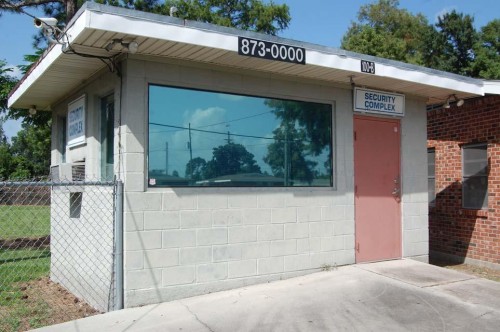
Lola Dardar
July 27, 2010
Senator Circle residents oppose duplex donation
July 29, 2010Is it light at the end of the tunnel, or a freight train bearing down on Louisiana?
The answer, sadly, could be both when it comes to developments surrounding the BP oil spill in the Gulf of Mexico.
Last week, thousands showed up at an industry-orchestrated rally in the capital of the Cajun oil patch, Lafayette, to voice their displeasure with a moratorium on deepwater drilling.
The outpouring came even as BP was closing in on a possible final solution for the 3-month spill that dumped millions of gallons of oil into the Gulf, fouled coastal marshes and beaches, wrecked the fishing industry and played havoc with the lives of thousands of people across four states.
Gov. Bobby Jindal, continuing to snap at the heels of federal officials overseeing the spill response, told the clearly anti-moratorium and anti-Barack Obama crowd that the moratorium was having an impact beyond new deepwater drilling. Permits for shallow-water oil and gas exploration, the governor said, plunged after the rig Deepwater Horizon went up in flames April 20, killing 11 workers and setting off the worst oil spill the central Gulf Coast has ever seen.
“It’s ironic that the only drilling going on is BP,” Jindal said.
He was talking about the two relief wells BP has been beavering away on to kill its busted well a mile deep in the Gulf.
Louisiana has been through oil busts before. The big one, in the middle 1980s, slashed through the oil patch from the Cajun country to New Orleans. Almost overnight, homegrown oilfield service companies were exterminated. Good-paying petroleum jobs evaporated from New Orleans’ downtown office tower strip.
Jindal wasn’t in office then, but you can bet he’s paying attention to the lesson that his predecessors learned the hard way.
As Economic Development Secretary Stephen Moret would tell you, economic diversity is a good thing. Sometimes it’s born in crisis. But it’s not the only way you’d like to see it happen.
After the ’80s oil bust, Louisiana turned to other traditional strengths for jobs and revenue for the state. Capitalizing on the charm of antebellum mansions, the inviting Cajun culture and the myriad attractions of New Orleans, tourism was launched to new and successful heights. And then in the early 1990s came gambling.
Jobs blossomed, but they lacked the pay – and the economic punch – of the oil sector. The residential and commercial real estate markets in St. Tammany Parish, for example, took a hammering after oil jobs started leaking out of New Orleans. Similar impact was felt elsewhere along the coast as jobs were pulled back to Texas.
So every job lost due to the ripple effects of the drilling moratorium could be a job that never returns. Laid-off workers could be forced to take lower-wage jobs and the cycle spins downward. That’s the fear festering in south Louisiana.
Industry-watchers say damage from the moratorium is far from assured.
Thomas Kellock, an industry tracker for ODS-Petrodata, thinks the Gulf could lose out but only if the moratorium goes past its current 6-month limit. Business, he says, will return.
There are other uncertainties. Possible new regulation that would require adjustments in the industry, for example, might delay a rebound. If the global economy takes another dip, then lower oil prices could cut back drilling. That would be bad, too, for state revenues.
Lots of ifs for sure.
For now, Jindal is burdened with carrying the flag against the moratorium on his mission to save jobs, and keeping up the pressure on federal officials to sweep coastal waters of the oil that has crippled fisheries.
Some researchers say the state’s rich grounds for oysters, shrimp and finfish could be damaged for many years, and no one really knows what effect the oil is having on the roots of the food chain at the Gulf floor. That could have long-term effects on the economy and thrust a dagger into a generations-long way of life.
And so Jindal confronts his own version of the oil bust.
How he guides the state through it could launch him back into the national spotlight.
It’s the kind of challenge that tests the mettle of a man many say could be president one day.
As long as that light of the end of the tunnel isn’t coming from an onrushing locomotive.
– Brian Schwaner is The Associated Press news editor for Louisiana and Mississippi and is based in New Orleans.








